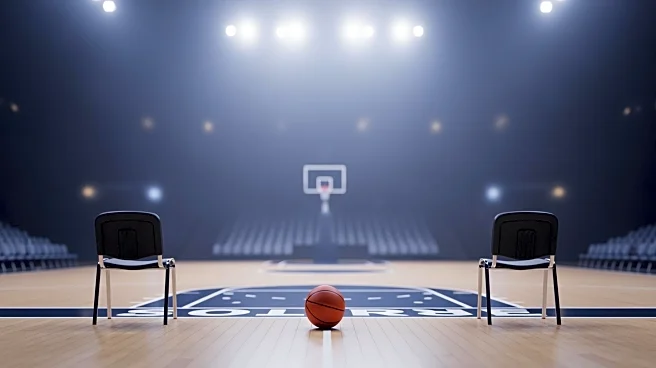What's Happening?
The Los Angeles Lakers have started the 2025-26 NBA season with a 7-3 record, despite the absence of LeBron James due to sciatica. Paul Pierce, a former rival of James, has suggested that Lakers coach JJ Redick should consider benching James upon his
return. Pierce argues that James' playing style does not complement Luka Doncic, who has been pivotal in the Lakers' strong start. Pierce made these comments on the 'KG Certified' podcast, suggesting that James could still contribute effectively from the bench. However, the idea of James accepting a bench role is unlikely, given his stature and influence in the sport.
Why It's Important?
The suggestion to bench LeBron James highlights the ongoing debate about team dynamics and player roles in professional basketball. If implemented, this move could significantly impact the Lakers' strategy and chemistry, especially with Luka Doncic's current performance. The decision could also affect James' legacy and his relationship with the team, as he is known for his strong influence and leadership. The broader implications for the NBA include discussions on how veteran players adapt to evolving team structures and the balance between individual talent and team cohesion.
What's Next?
As LeBron James recovers from sciatica, the Lakers will need to decide on his role upon his return. Coach JJ Redick may consider staggering the minutes of his star players to optimize team performance. The decision will likely involve discussions with James, who has historically been vocal about his role and contributions. The team's management and coaching staff will need to navigate these dynamics carefully to maintain their strong start to the season and ensure long-term success.
Beyond the Headlines
The suggestion to bench LeBron James raises questions about the transition of veteran players in the NBA. It highlights the challenges of integrating new talent while respecting the contributions of established stars. This situation could lead to broader discussions on player management, team leadership, and the evolution of basketball strategies. The cultural impact of such decisions may influence how future teams handle similar scenarios, potentially reshaping the league's approach to player roles and team dynamics.
















